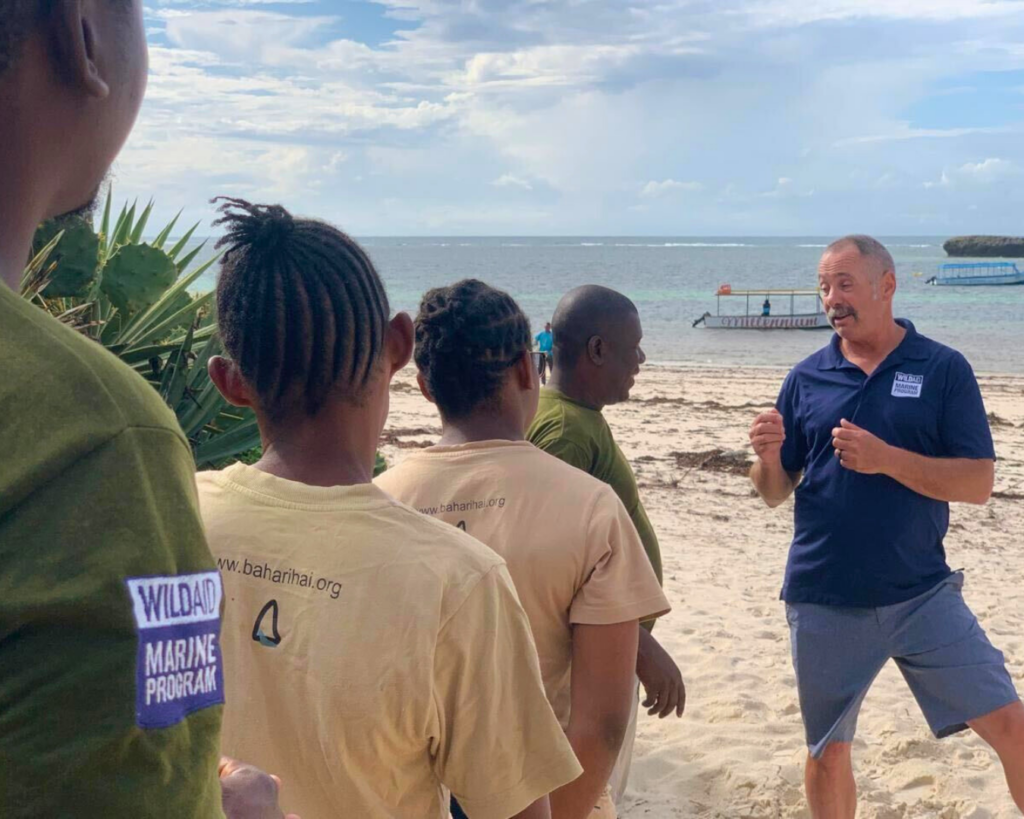
The Western Indian Ocean is globally recognized for its rich marine biodiversity. This region is home to numerous endangered species of sea turtles, dolphins, and sharks, along with vital ecosystems such as coral reefs, mangroves, and seagrasses. Unfortunately, these ecosystems attract illegal fishers who threaten the health of fish populations and other endangered species and jeopardize the livelihoods of local communities.
To enhance marine protection and combat illegal fishing in the area, WildAid recently visited Kenya and Tanzania to foster coordination between our local partners: Kenya’s Bahari Hai and Tanzania’s Mwambao. Our key goals were to strengthen relationships between enforcement entities and community management groups (CMGs) and to share best practices. We achieved this through interagency meetings to discuss enforcement scenarios and identify response pathways, joint patrols to improve operational planning, preparedness, and communication, and addressing operational issues such as data recording and equipment needs, especially related to software like EarthRanger and SMART.
Our two-week program saw Kenyan participants traveling to Pemba Island, Zanzibar, to meet with local patrol teams and fisheries officers. They conducted day-long training sessions, identified priority issues, and strategized solutions before embarking on a joint patrol. The following week, Tanzanian patrol team members visited Watamu, Kenya, to collaborate with Bahari Hai’s anti-poaching team and staff from Kenya Wildlife Service (KWS) and Kenya Forest Service (KFS). Through these interactions, lasting professional connections were forged, and new opportunities for future exchanges were identified.


WildAid’s approach also involves developing standardized policies and procedures that can be adopted across different regions, ensuring a unified approach to marine conservation and enforcement. This includes establishing regular communication channels and collaborative frameworks to ensure ongoing cooperation between different enforcement entities and NGOs. Leveraging technology like SMART and Earth Ranger for data collection and monitoring, and ensuring all partners are trained in using these tools effectively, is another critical aspect of our strategy.
The collaboration between WildAid, Bahari Hai, and Mwambao exemplifies the power of international cooperation in marine conservation. By sharing knowledge, resources, and strategies, together we are making significant strides in protecting the invaluable marine ecosystems of the Western Indian Ocean.


Stay in touch and get the latest WildAid updates.
SIGN UP
